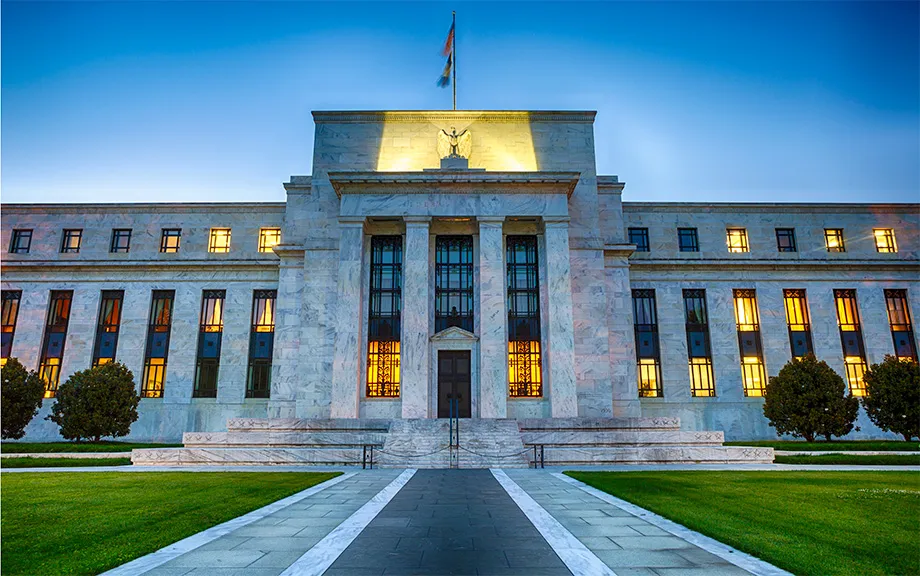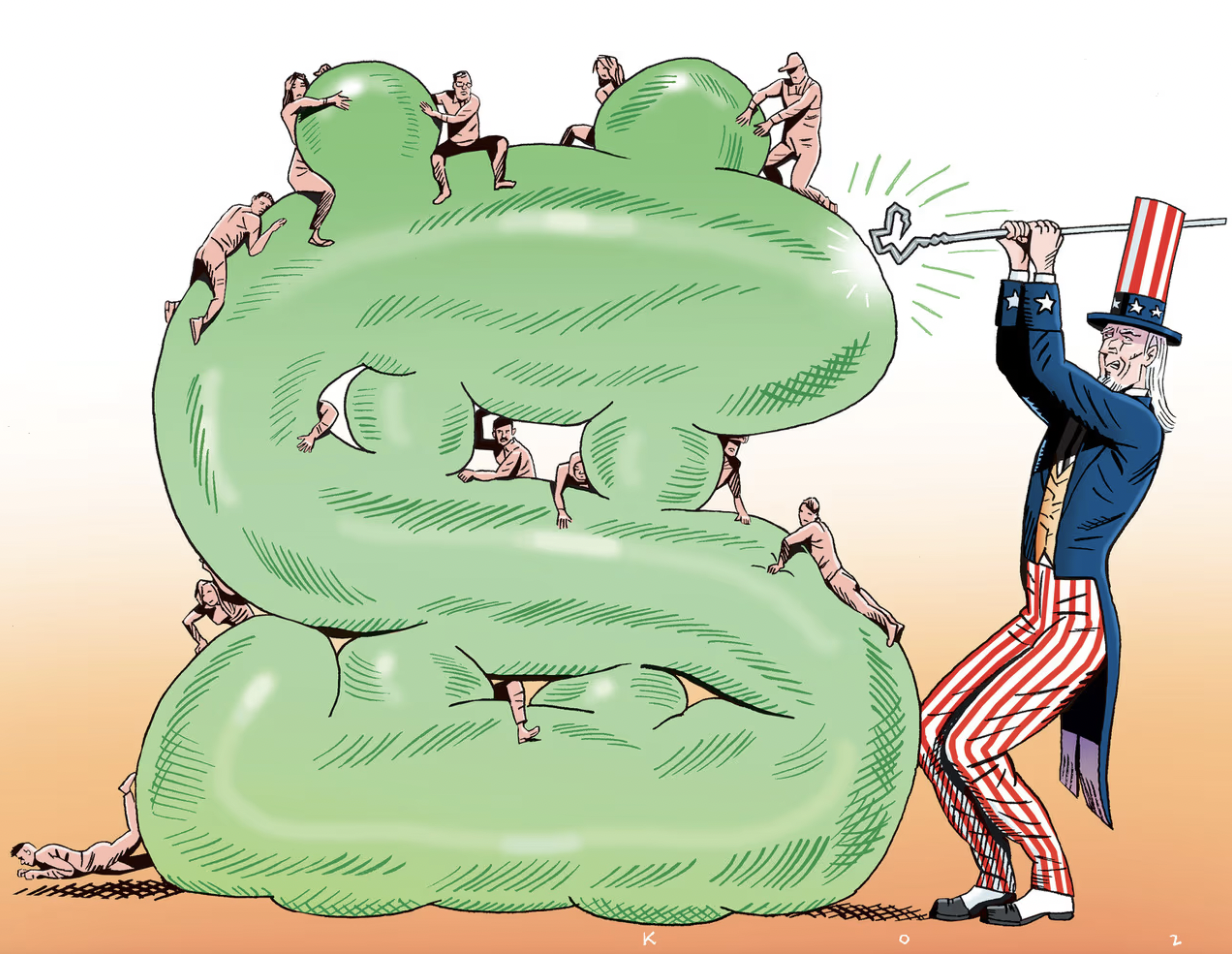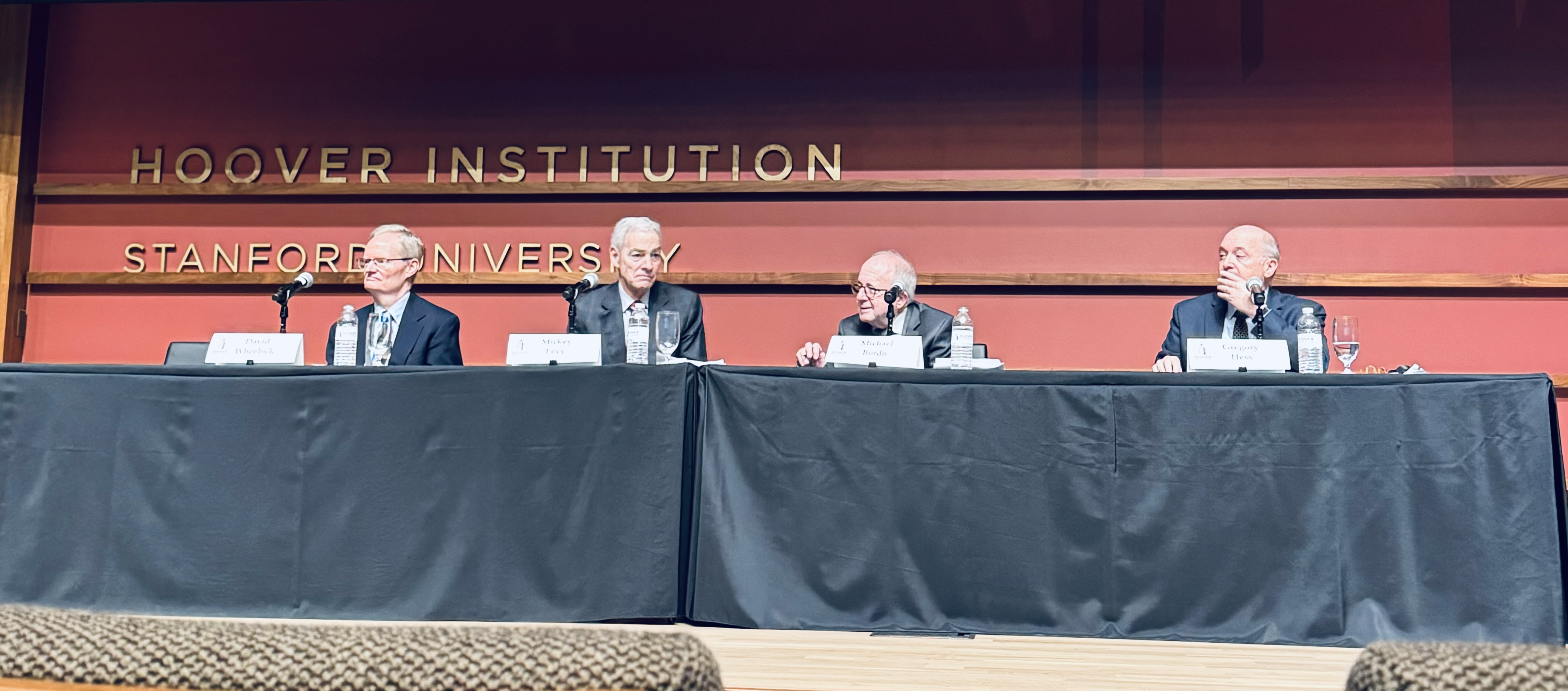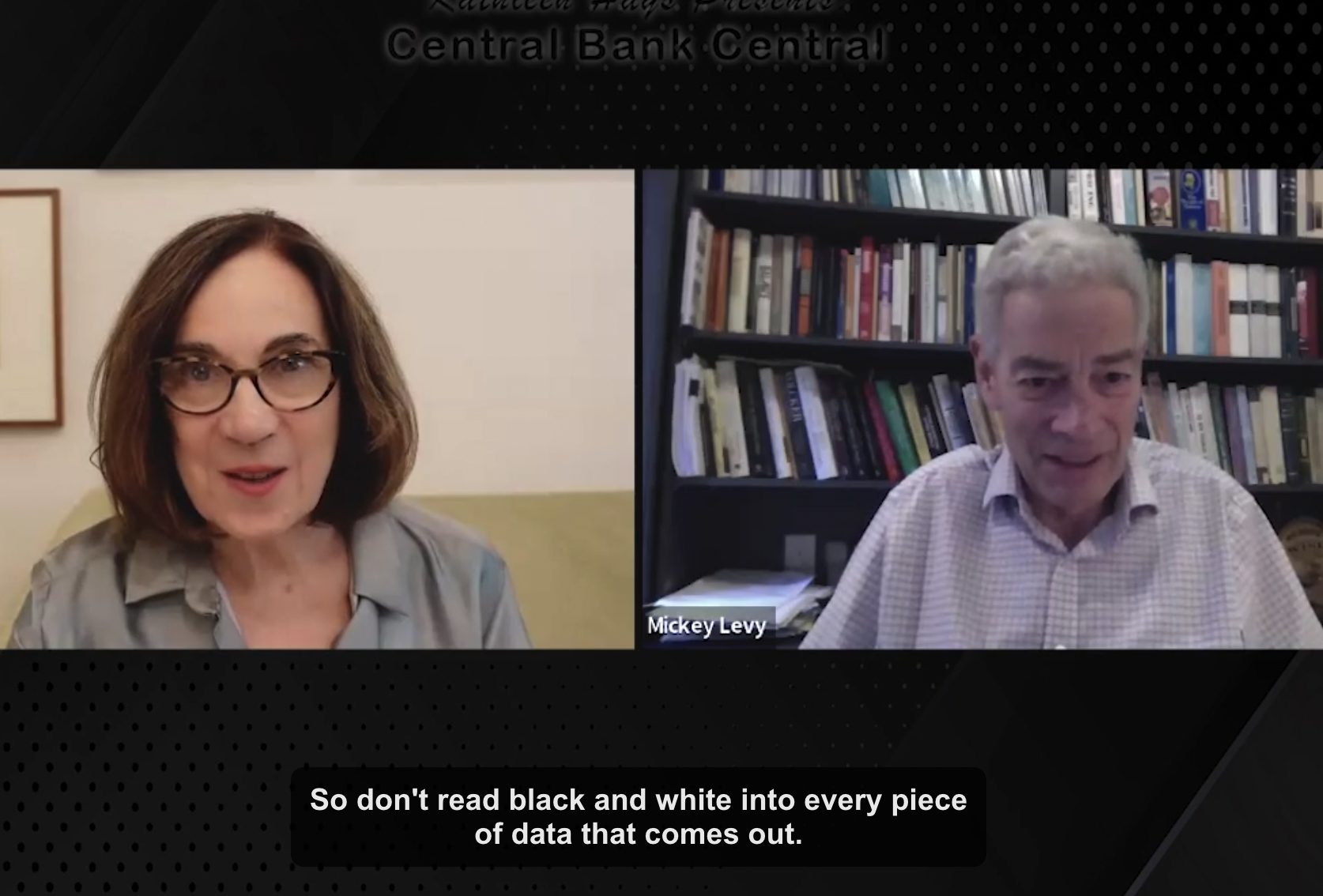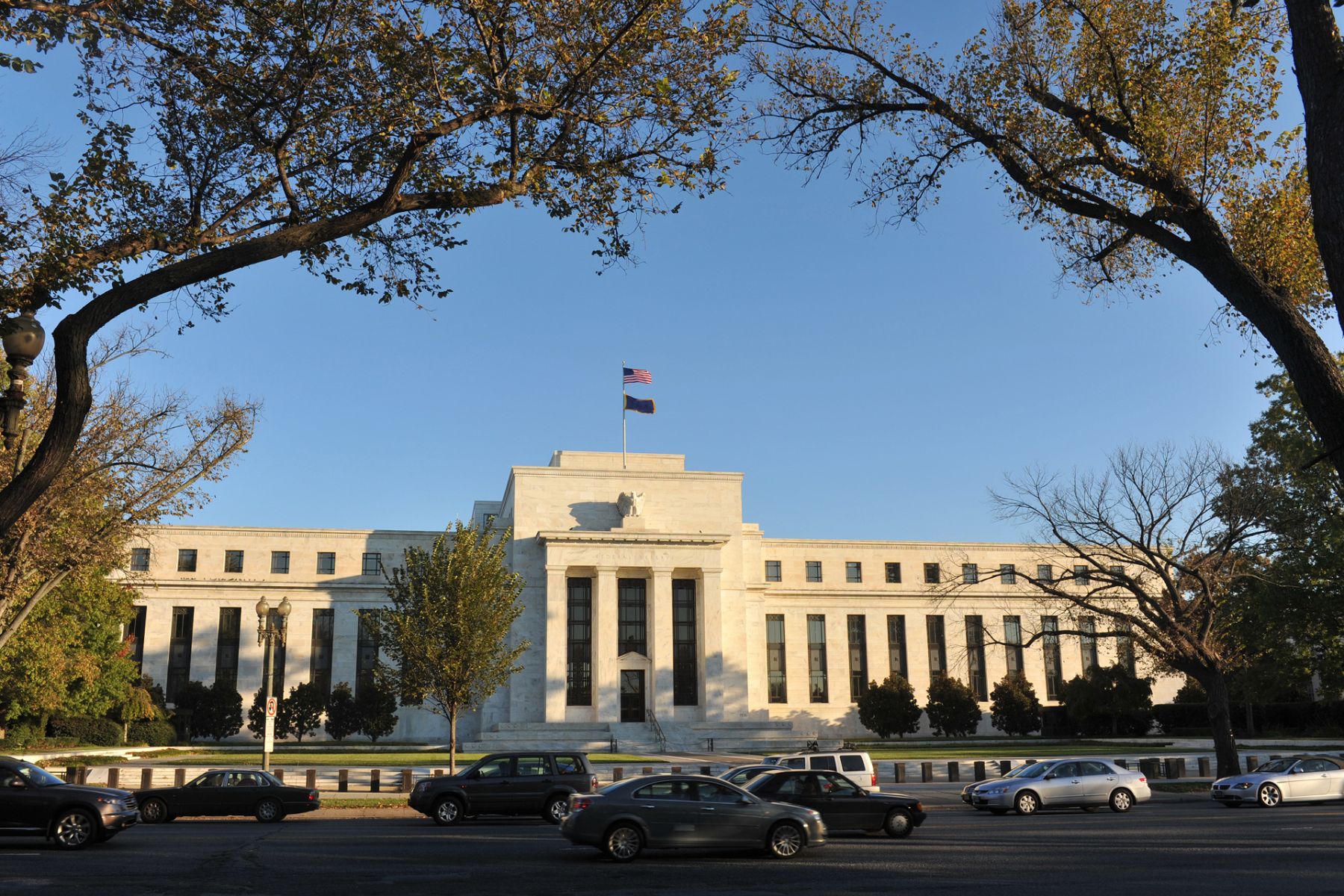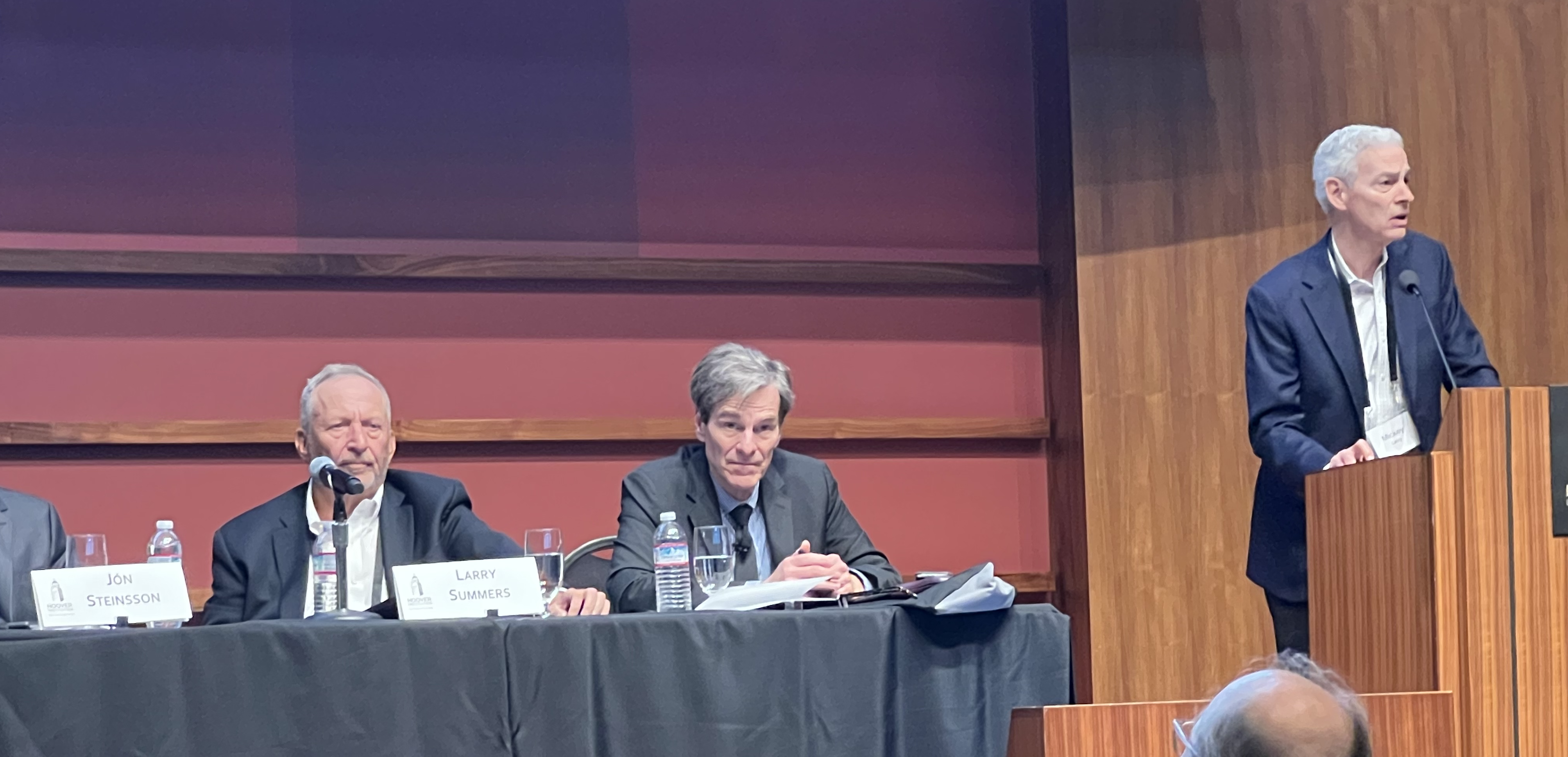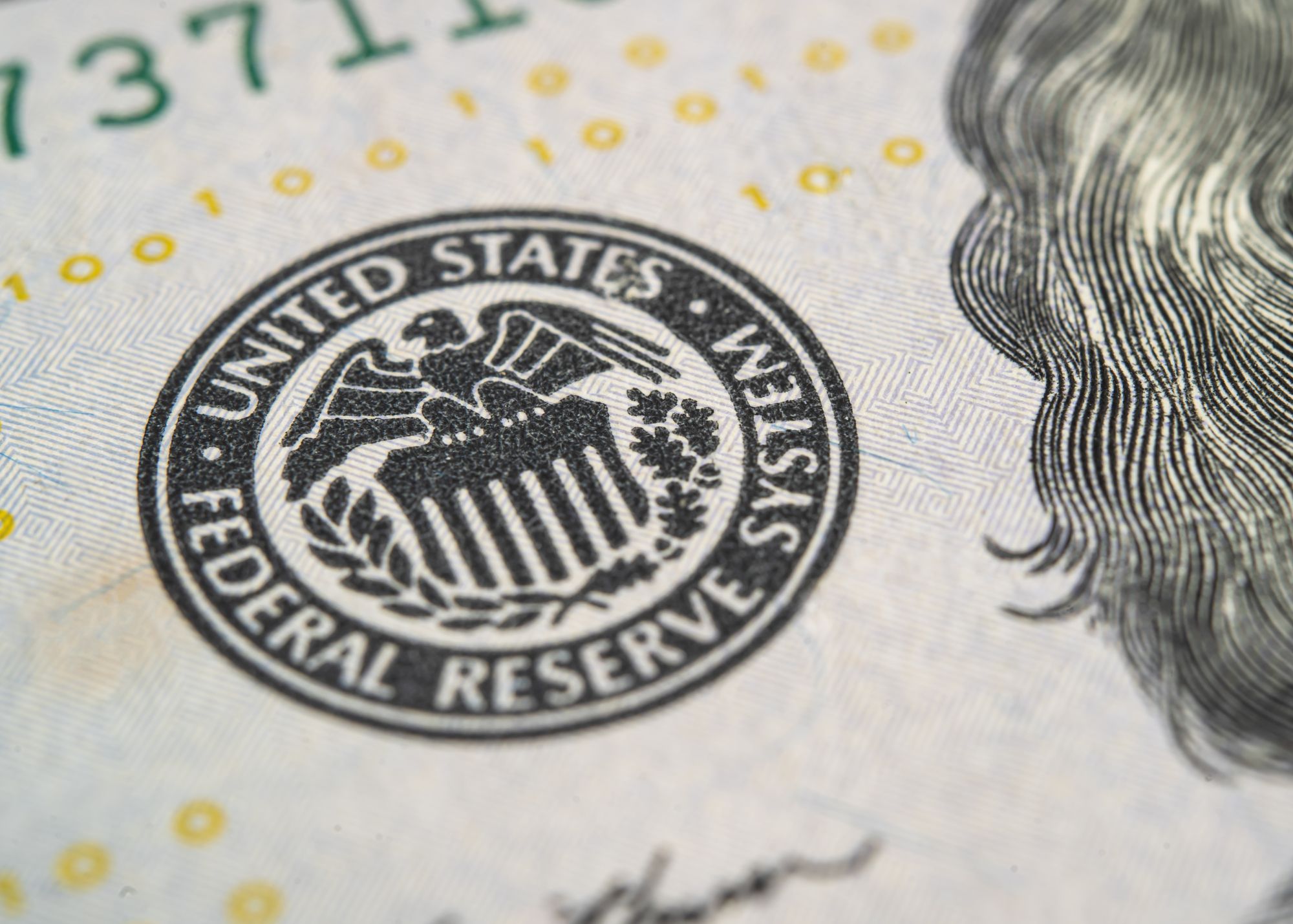Articles and Publications
April 25, 2025
Trump’s Tariffs Capture a Plethora of Historic Mistakes
Here's a presentation on tariffs I made with my colleague Michael Bordo at a Hoover Institution Economic Policy Workshop. Mike describes how Trump's tariffs policy ignores the important lessons of history that tariffs are costly mistakes. In the second half of the presentation, I describe the likely adverse impacts of tariffs on the economy, financial markets and the Fed, with a focus on the potential high costs of a loss of U.S. government credibility and reliability. I conclude with a scenario analysis of Trump's tariff policies and speculate on probable outcomes.
March 17, 2025
A Trade War Puts Pressure on the Federal Reserve
Wall Street Journal Commentary: Mickey D. Levy and Michael Bordo describe how the negative shock of President Trump's tariffs is on a collision course with the Fed's dual mandate. History suggests that the Fed will likely ease monetary policy in response to the negative impacts of the tariffs on the economy and labor markets, but doing so may elevate inflation even higher and compound the costs of the tariffs.
March 5, 2025
Levy Sees Uncertainty Weakening Demand and Lowering Inflation Despite Tariffs
Here's a podcast interview on Central Bank Central with Kathleen Hays and Mickey Levy. In it, they discuss the implications of the tariffs for the economy and inflation, and how this will affect the Fed's perception of the balance of risks as it deliberates on monetary policy.
March 2, 2025
Tariffs and Threats—Will the Fed Be Next?
This is a paper Mickey Levy co-authored with Michael Bordo that was published by the Hoover Institution in its Defining Ideas series. We describe the analytical flaws and misperceptions underlying Trump's preference for tariffs, discuss their expected effects, and express concerns that Trump's next move may be to pressure the Fed to lower rates or maybe manage the US dollar through Treasury-Fed currency intervention. Both activities would be dangerous, and we urge members of Congress on both sides of the political aisle to support the independence of the Fed.
December 21, 2024
An Evenhanded Analysis of Trump’s Economic Policies
In this new Hoover Institution Defining Ideas article, I assess possible impacts of deregulation, lower tax rates, and tariffs. Drawing on the history of Trump’s first term, an evenhanded assessment of the four pillars of Trump’s current economic platform — higher tariffs and tough anti-China policies; extending the 2017 tax cuts; deregulation and increasing government efficiency; and deporting immigrants — suggests that there will be offsetting pluses and minuses. The net economic impacts are most likely somewhere in between the most pessimistic prognostications and the rosy scenario envisioned by the Trump team. There are many key uncertainties and risks.
December 4, 2024
The Economy Is Still Inflated
Wall Street Journal Commentary by Mickey D. Levy and Michael D. Bordo: The Federal Reserve has slowed inflation, but many Americans continue to pay a high price for the cumulative inflationary consequences of excessive monetary and fiscal stimulus.
October 16, 2024
A 50-Year Retrospective On The Shadow Open Market Committee And Its Role In Monetary Policy
Here's a lengthy paper I wrote with Professor Michael Bordo that assesses the 50-year history of the Shadow Open Market Committee and the evolution of monetary policy since the 1970s. We presented the paper at the 50th Anniversary SOMC meeting that was sponsored by the Hoover Institution of Stanford University held on October 13-14. The paper describes the SOMC's monetary policy recommendations and research, summarizing over 560 position papers by its members, and analyzes the Committee's stances and influences as the Fed's interpretation of its dual mandate has shifted over the years. Researching and writing the paper was my big summer project and I hope you like it.
July 26, 2024
The Antigrowth Agendas of Harris and Trump
Wall Street Journal Commentary by Mickey D. Levy: The economic platforms of both presidential candidates are littered with antigrowth proposals.The Biden platform, on which Kamala Harris will presumably run, is a pumped-up version of typical Democratic policies. It features significant increases in taxes and spending.Donald Trump is proposing to hold the line on spending and current tax policy but would raise tariffs and pursue an economically destructive immigration policy. The resilience and resourcefulness of the U.S. private sector is remarkable, but why test it with these wrongheaded proposals?
June 11, 2024
Levy: Fed’s System of Estimating and Communicating Dots Needs Changes
At the conclusion of its FOMC meeting this Wednesday, the Fed will release its quarterly Summary of Economic Projections (SEPs). In this podcast episode of Central Bank Central, Kathleen Hays and I discussed expected changes in the Fed's projections, the history of the SEPs, and common misperceptions. Based on a recent paper co-authored with Charles Plosser, former President of the Federal Reserve Bank of Philadelphia, and presented to the Hoover Monetary Policy Conference ("The Fed's Strategic Approach to Monetary Policy Needs a Reboot", May 2-3, 2024) and last week's related Wall Street Journal Commentary ("What the Fed Doesn't Communicate, June 6, 2024), I provide suggestions for how the Fed should modify and improve the SEPs.
June 6, 2024
What the Fed Doesn’t Communicate
WSJ Commentary: Every quarter the Federal Reserve publishes a summary of economic projections. The one released during next week’s Federal Open Market Committee meeting will be scrutinized for information on the central bank’s view of inflation, economic conditions and interest rates. Though the Fed releases these summaries with the best of intentions, its estimates of the appropriate policy rate are frequently off the mark. It needn’t be this way. The central bank can modify its methodology to improve its policy deliberations and how it communicates. This opinion piece by By Mickey D. Levy and Charles I. Plosser makes recommendations for improving the Fed's quarterly Summary of Economic Projections. Some of the recommendations — such as including Taylor Rule estimates alongside the FOMC's projections and asking FOMC members to provide estimates for different scenarios — might make the Fed uncomfortable, but they would enhance the exercise.
May 3, 2024
The Fed’s Strategic Approach to Monetary Policy Needs a Reboot
Fed Chair Powell has announced the Fed will conduct a strategic review of monetary policy later this year. This article, co-written by Mickey D. Levy and Charles I. Plosser, focuses on the characteristics and failures of the strategic framework that the Fed adopted in 2020 and how this framework contributed to monetary policy mistakes and high inflation. It provides suggestions on issues the Fed should consider in its upcoming strategic review.
April 18, 2024
America’s Economic Riddle
This is a podcast conversation between Mickey Levy and Bill Whalen of the Hoover Institution at Stanford University. It was part of Whalen's podcast series Matters of Policy & Politics. The pair discusses trends in employment and unemployment, factors underlying inflation, and the implications of dramatically higher prices during this presidential election year. With the "misery index" (the sum of the rates of inflation and unemployment) so low, why do so many express unhappiness with economic performance? They then discussed the difficult issues facing the Federal Reserve, and prospects for monetary policy and interest rates.

